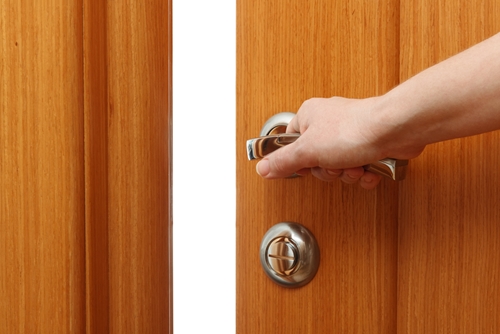Almost every dance studio owner has dealt with some problem parents at one point or another. Sometimes you might not see them coming, other times you can tell they’ll be difficult from a mile away. However it occurs, one bad apple tends to spoil the rest. You don’t want to let one parent turn all of the other parents against you, or encourage them to engage in the drama. So what is a dance studio owner to do? Consider these four tips on how to deal with troublesome dance parents and how to avoid welcoming them back for another year.
1. Have Legitimate Reasons
It is important for dance studio owners to have a contract that lays out the studio policies as well as the consequences for breaking those rules. All parents, and children if they’re of age, should sign this contract before enrolling. If a parent violates one of these rules, studio owners should document the incident and notify the parent.* Refer to your list of studio policies that the parent agreed to upon enrolling in your studio.
Most studio rules don’t welcome aggressive or negative behavior, regardless of whether it comes from the student or parent. It’s also important not to bring other dance parents into the mix. While they may agree with you, you don’t want to start drama between dance parents. However, it is OK to corroborate your opinion with other studio staff members to help support your stance.
2. Deal With Problems in a Timely Manner
Sometimes parents will cause a scene during the dance year, forget about it over the following summer, and assume they can come back and have a fresh start. However, you and other parents may not have forgotten about that incident. While you might be surprised by their attempts at re-entry, it does happen.
If studio owners don’t handle bad behavior right away, it could have unexpected consequences—other parents may be dismayed that a parent got away with poor behavior and choose to leave the studio. When these scenarios occur, it is vitally important to deal with them in a timely fashion.
3. Offer Feedback Forms
Some dance studios offer feedback forms, according to DanceAdvantage.net. These forms give parents the opportunity to mention any comments, good or bad, that they have about the studio. Sure, the commentary may not always be constructive, especially if they bring up something like a costume malfunction, but these forms can also help keep the peace and prevent gossip from stirring up.
Once these forms are submitted, dance owners and parents can sit down to discuss the issues at hand. Setting up a meeting can be a calm, constructive way to find a resolution for a problem. Sometimes, though, resolutions cannot be found. At this point, you’re allowed to note that it’s studio policy and can calmly suggest that they find another studio to go to. Even though it isn’t the best way to refuse a parent back, you can do so knowing that you tried your best to hear the parent’s point of view.
4. Note Issues With Tardiness and Payments
Tardiness shouldn’t be welcomed at practice or any other time, as it can quickly become a habit. Dancers who show up late may throw off routines, cause practices to go later or could compromise a dance recital.
As a studio owner, it’s important to discuss your rules about tardiness with parents. Note the issues that arise from tardiness, and its effects on other dancers and parents. The same goes for payments. To keep your business up and running, you need to charge parents for their children’s lessons. Whether you charge them weekly, monthly or bi-annually is up to you.
However, if a parent doesn’t pay, it can quickly become an issue. If a parent consistently forgets or owes the studio a significant amount of money, it’s acceptable to terminate his or her contract. Discuss with the parent how lack of payment affects the studio as well as the purchase of costumes, footwear and equipment. Hopefully the parent will understand these legitimate reasons for not being welcomed back.
*Reader and veteran studio owner Danie Beck also suggested that in some cases, after you’ve spoken with the parent it may be a good idea to put the dismissal and the reasoning behind it in writing and send it to the parent. If you do, she noted that you should be sure to send it to them “return receipt requested,” so everyone is on the same page and there won’t be any surprises at registration time.
Editor’s note: This article has been updated to include reader feedback.


